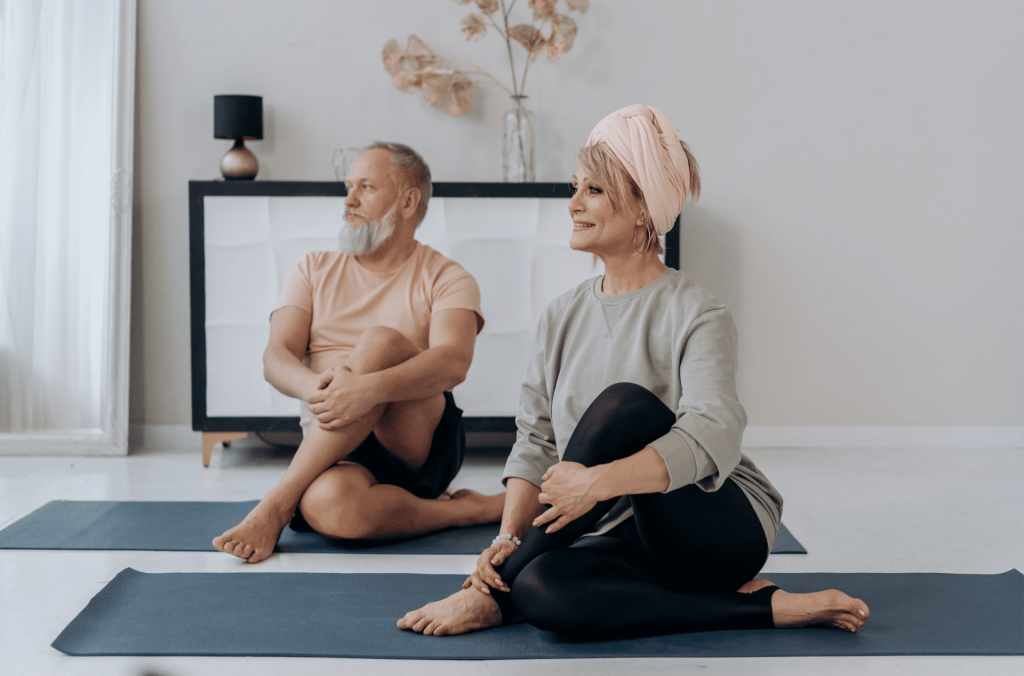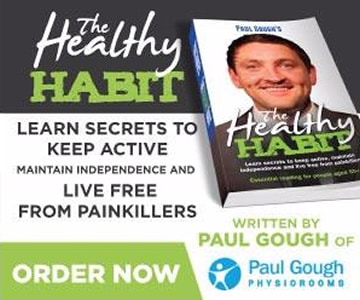Retirement is an exciting time for older people coming out of the hustle and bustle of working lives to a quieter way of life.
But it can also be a daunting time, wondering what you can do with your time, and how you’re going to adjust to this new way of life.
If you’re thinking about how you can stay active in your retirement, look no further!
This blog includes the reasons why it is so important to stay active in your retirement, the benefits to your health and wellbeing in the future, and what you can do to stay active in your retirement.
Why Is It Important To Stay Active In Retirement?
Staying active in your retirement can prevent or delay many mental and physical health problems that often come with age such as arthritis, stiff joints, and muscle weakness.
Older adults need at least 150 minutes of exercise a week to improve their health and overall wellbeing. But don’t worry, this could be 30 minutes a day 5 days a week on moderate intensity exercise such as brisk walking or gentle aerobics.
This activity will help your muscles to grow stronger, lower your risk of falls, and allow you to carry on with your day-to-day routine.
Ultimately, this means you can retain your independence long into the future.
Physical activity can also help to improve your mental health. When you exercise your body releases endorphins (“feel good” hormones) which can set your mood high for the day!
Maintaining good mental health during retirement can help prevent you from isolating yourself, and even prevent diseases such as Alzheimer’s.
Exercising daily has also been linked to getting a good night’s sleep. Disturbed sleeping patterns is something a lot of older people suffer with. However, if you exercise during the day, this will help your body to fall asleep faster at night and even help you stay asleep through the night.
What Can You Do To Stay Active In Retirement?
There are many different activities you can do to stay active in retirement, but we have picked a few to get you started!
Join An Exercise Class
To stay active, you could join an exercise class like walking, aqua aerobics or pilates, the choices are endless! Not only will this give you the benefits of daily exercise, but it can also boost your social life and improve your mental health.
Develop A New Routine
As you come into your retirement your days will look very different to what they once were! Having a routine will stop you from losing purpose as you plan activities to fill your day.
Planning different activities into the day keeps your brain stimulated which can lower your risk of memory loss and loss of mental capacity.
Eat Well
Eating well is a vital component to keep you healthy in your retirement. Eating a nutritious diet can boost your energy levels and reduce your risk of diet-related illness.
Factoring healthy meals into your daily routine will also mean you can steer clear of comfort junk food, although we recommend treating yourself now and then!
Often people who don’t have routines and experience loneliness turn to comfort foods, leading to increased weight gain and lack of energy to get out and do some physical activity.
Pick Up A New Hobby
Finding a new hobby like gardening, art classes or book clubs is an ideal way to fit some activity into your day.
Retirement is a fantastic time to learn new skills and take up some new activities. Whether you choose a skill or a sport, you can stimulate your brain and body to give you an overall healthier lifestyle.
Address Niggling Injuries Quickly
You might have noticed after a busy weekend you wake up feeling stiff and achy and I bet that you didn’t experience this 20 years ago.
As we age, injuries do build up and it can take longer to recover from them which is why it’s so important to fix little niggles before they turn into something bigger which does impact your hobbies and social life.
Physiotherapy, sports massage, orthotics and acupuncture are all ways that you can feel great in your retirement.
How Can Physiotherapy Help You Stay Active In Retirement?
When we talk to patients at our clinics, one of the common worries patients have for their retirement is how they retain their independence as they get older.
We know a lot of our elderly patients have problems like arthritis and stiff joints and mobility issues which means they struggle to do their favourite activities.
If you have existing, or recurring injuries, these also need to be treated to ensure that you can exercise safely and ensure that you can get fitter so you can go cycling with your friends, play with the grandchildren at the park, or take the dogs on long walks at the weekend.
At Paul Gough Physio Rooms, we have four North East clinics (Darlington, Durham, Guisborough and Hartlepool) and we offer free physiotherapy consultations, where you can speak to a member of our team, ask any questions that you have, and find out what’s stopping you from getting the life you want.
We can also help you understand how to get healthier so you are able to make the most of your retirement with your partner, friends and family rather than spending it in pain, struggling to move and feeling like a burden to those around you because you aren’t able to keep up.
Alternatively, you can call us on 01429 866 771 if you prefer to talk over the telephone.
Other Free Resources To Help Elderly People Keep Active
Click Here To Read More Of Our Physiotherapy Blog Articles
Click Here To Read – Why Do I Get Knee Pain When Walking?
Click Here To Read – Stay Independent In Retirement
We also have free, downloadable reports for people with Back Pain, Knee Pain, Neck And Shoulder Pain or Sports Injuries
Want videos on demand? Check Out Our YouTube Channel (Remember to hit subscribe so you don’t miss out on our new videos!)
On social media? Follow us on Facebook, Instagram or LinkedIn


